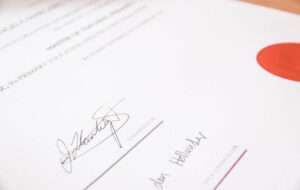
Table of Contents
Becoming a Board Certified Behavior Analyst (BCBA) in New York is a rewarding career path for those interested in learning and applying behavior analysis principles to help individuals, particularly those with developmental disabilities, improve their quality of life. The journey to becoming a BCBA involves a combination of education, experience, and examination. In this blog post, we’ll guide you through each step of the process to achieve your goal of becoming a BCBA in New York.
What is a BCBA?
A Board Certified Behavior Analyst (BCBA) is a professional who has received a certification in applied behavior analysis (ABA) from the Behavior Analyst Certification Board (BACB). BCBAs specialize in assessing behavioral problems and implementing evidence-based interventions to modify behavior. Their work is critical in fields such as autism spectrum disorders, developmental disabilities, mental health, education, and more. The BCBA certification equips professionals with the skills and knowledge of applied behavior analysts necessary to develop, implement, and evaluate quality interventions that improve the quality of life for individuals and their families.
Where do BCBAs work?
BCBAs find employment in a variety of settings, reflecting the wide applicability of their expertise in behavior analysis. Schools and educational institutions often hire BCBAs to assist with developing and implementing behavioral interventions for students, especially those with special education needs. In healthcare, BCBAs work in hospitals, mental health facilities, and dedicated clinics for developmental disorders, providing assessments and behavior modification strategies. They are also employed in community-based settings, where they support individuals and families in managing behavior-related challenges in everyday life. Additionally, BCBAs may work in research settings, contributing to the advancement of the field through studies on behavior analysis. The versatility of their skills allows BCBAs to make meaningful impacts in various environments, from direct patient care to academic research and policy development.
Essential Skills for a Successful BCBA
To thrive as a Board Certified Behavior Analyst (BCBA), a professional must possess a unique blend of skills that are crucial for the effective application of behavior analysis principles. First and foremost, a deep understanding of Applied Behavior Analysis (ABA) theories and methodologies is fundamental to professional practice. This includes the ability to conduct comprehensive behavioral assessments, develop targeted intervention plans, and measure the effectiveness of interventions.
Analytical and problem-solving skills are also vital. BCBAs must be able to analyze data from behavioral interventions, identify trends, and make evidence-based decisions to adapt strategies as necessary. Communication skills are equally important; BCBAs must effectively communicate complex behavioral concepts and plans to individuals, families, and other professionals, often translating technical jargon into understandable language.
Empathy and patience are key personal qualities that enhance a BCBA’s work. Understanding the challenges faced by individuals and their families, and maintaining a compassionate and supportive approach, is essential for building trust and facilitating positive change. Additionally, organizational and time-management skills are crucial, as BCBAs often manage multiple cases and must maintain detailed records of assessments, interventions, and outcomes.
Overall, the role of a BCBA demands a combination of specialized knowledge in behavior analysis, along with strong analytical, communication, and interpersonal skills, to effectively support individuals and improve their quality of life.
Step 1: Understand the Role of a BCBA
Before embarking on this journey, it’s crucial to understand what a BCBA does. BCBAs apply the science of behavior analysis to conduct behavioral assessments, design and implement behavior intervention plans, and supervise those who implement these plans. They work in various settings, including schools, clinics, hospitals, and private practice.
Step 2: Obtain the Required Education
The first step toward becoming a BCBA is to earn a minimum of a master’s degree in behavior analysis, education, psychology, or a related field from an accredited institution. New York, like many other states, adheres to the standards set by the Behavior Analyst Certification Board (BACB), which oversees the certification process for behavior analysts globally. However, New York also requires its BCBAs to become LBAs or a Licensed Behavior Analyst to practice.
Accredited Programs:
- Ensure the program you choose is accredited by the Association for Behavior Analysis International (ABAI). This accreditation is crucial as it signifies that the program meets the rigorous standards necessary for BCBA certification.
- New York is home to several universities offering ABAI-accredited programs. You can find a list of these programs on the BACB and ABAI websites.
Step 3: Complete Supervised Fieldwork
After obtaining your degree, the next step is to complete supervised fieldwork. The BACB requires candidates to complete a certain number of hours of supervised fieldwork, which provides practical experience in behavior analysis.
- Supervised Independent Fieldwork: Requires 1,500 hours.
- Practicum: Requires 1,000 hours, with more intensive supervision.
- Intensive Practicum: Requires 750 hours, with the most intensive supervision among the options.
It’s essential to ensure that your supervisor meets BACB requirements. The experience should include activities such as conducting assessments, designing and implementing behavior-analytic interventions, and research methods for collecting and analyzing data.
Step 4: Pass the BCBA Examination
Upon completing your education and supervised fieldwork, the next step is to pass the BCBA examination. The exam is comprehensive and assesses your knowledge and skills in applied behavior analysis. It covers topics such as ethical considerations, definitions and principles of behavior analysis, assessment procedures, and behavior-change procedures.
- Preparing for the Exam: There are various resources available to help you prepare, including study guides, practice exams, and review courses.
- Scheduling the Exam: After your application has been approved by the BACB, you can schedule your exam. Testing centers are located throughout New York and globally.
Step 5: Apply for Licensure in New York
After passing the BCBA exam, the final step is to apply for licensure in New York. The New York State Office of the Professions oversees the licensure of behavior analysts.
- Requirements: Along with passing the BCBA exam, you’ll need to submit an application and fee to the state board. Additional requirements may include background checks and proof of supervised experience.
- Maintaining Your License: To maintain your BCBA certification and New York licensure, you’ll need to complete continuing education requirements and adhere to the BACB’s ethical guidelines.
Becoming a BCBA in New York is a challenging but rewarding journey. It requires dedication, hard work, and a commitment to improving the lives of individuals through behavior analysis. By following these steps and staying committed to your goal, you can join the ranks of BCBAs making a difference in New York and beyond.
- Autism Routine Disruption in Adults: Coping Tips - July 16, 2024
- Autism and Obsession: An Overview - July 16, 2024
- Autism and Taking Clothes Off: Management Tips - July 16, 2024



